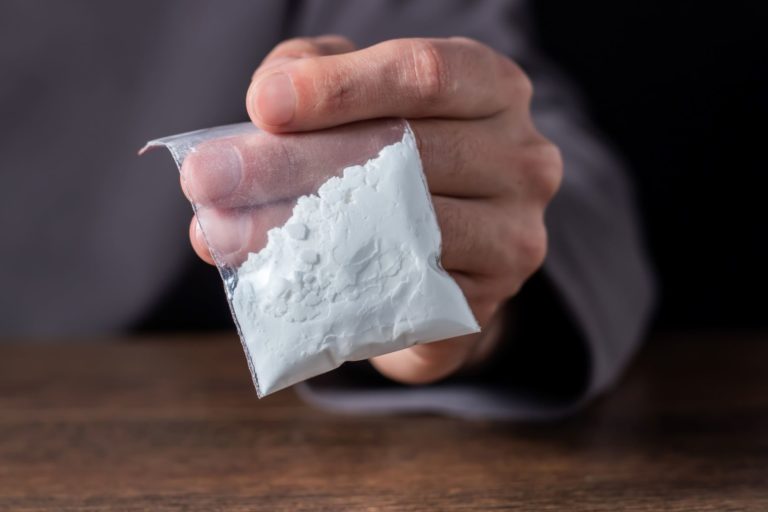Family & Friends Can Enable Substance Abuse
Home > Family & Friends

What are the Signs of Enabling an Addict?
Sometimes, the person suffering from substance use disorder is the last person to know for certain they have a problem. Their loved ones, however, are well aware of the problem, and are suffering in parallel with the alcoholic or substance user, but have no idea how to help them.
Often out of love, care, and concern we enable substance use. We give money, make excuses, and do many other things that help maintain the status quo. Without intervention and help, all of our best efforts and hopes keep the lifestyle of addiction intact and their lives will likely get worse as there is little incentive for the substance user to change. If you don’t act now…. then when will be the right time?
How To Help an Addict Without Enabling?
We understand that you care for your loved ones health and safety, however, enabling can do more harm than good. Sober at Home can help your loved ones get the resources they need to kick substance abuse and addiction. If you have questions about the Sober at Home program, or want to learn more about getting help for a loved one, sign up for a Q &A session with Sober at Home Founder David Gerber. David Gerber has been in the field of addictions for over 30 years and has extensive knowledge of substance abuse, and substance abuse therapies.
For more information, below is a list of extensive resources to help you determine the next best steps for you, your family and loved ones.
INFORMATION ON MARIJUANA:
- Smart Approaches to Marijuana: Smart Approaches to Marijuana – Smart Approaches to Marijuana (learnaboutsam.org)
- NATIONAL INSTITUTE ON DRUG ABUSE: TRENDS IN DRUG ABUSE (NIDA): Trends & Statistics | National Institute on Drug Abuse (NIDA) (nih.gov)
- NIDA: FENTANYL: Fentanyl | National Institute on Drug Abuse (NIDA) (nih.gov)
- NIDA: METHAMPHETAMINES: Methamphetamine | National Institute on Drug Abuse (NIDA) (nih.gov)
- NIDA: OPIOIDS: Opioids | National Institute on Drug Abuse (NIDA) (nih.gov)
- NIDA: MDMA (ECSTASY/MOLLY): Commonly Used Drugs Charts | National Institute on Drug Abuse (NIDA) (nih.gov)
INFORMATION ON RISKS OF DRUG USE:
Substances that are abused are becoming increasingly more dangerous since many are laced with Fentanyl unbeknownst to the user. Fentanyl is a narcotic that is up to 100 times more powerful than morphine, and only a small amount can lead to overdose death.
More information about the significant risks of some of the most commonly abused substances.
MENTAL HEALTH AND SUBSTANCE USE:
Nearly 80% of those who suffer from a substance use disorder have a co-occurring mental health disorder. Many, many people have misused substances to alleviate symptoms of depression, anxiety and other mental health issues. Below is a resource to explore the relationship between substance use and mental health.

SELF HELP MEETINGS ONLINE:
The guilt and shame that people feel about their addiction often leads them towards an inward journey, which makes them feel alone. Finding and connecting with others who have experienced the same feelings of guilt, shame and loneliness is an essential part of recovering.
AA/NA and SMART Recovery are helpful resources for those who are battling addiction, but there are also helpful resources for family members and loved ones.

- SMART RECOVERY: SMARTfinder – Location (smartrecovery.org)
MEDICATION ASSISTED TREATMENT (MAT):
For some Medication Assisted Treatment or Therapies may be an important tool in the recovery toolbox. For others, it’s important to the individual to choose a path of sobriety that does not include substance abuse medications. Below are some resources that address the pros and cons of the most common medications used to treat substance use disorders.
- SAMHSA: MEDICATION ASSISTED TREATEMENT: MAT Medications, Counseling, and Related Conditions | SAMHSA
- SAMHSA: NALTREXONE: Naltrexone | SAMHSA
- DRUGS.COM: VIVITROL: Vivitrol: Uses, Dosage, Side Effects, Warnings – Drugs.com
- FIND A VIVITROL PROVIDER: VIVITROL.com | Find a Provider
- SAMHSA BUPENORPHINE (SUBOXONE): The Facts about Buprenorphine for Treatment of Opioid Addiction | SAMHSA Publications and Digital Products
- FIND A SUBOXONE PROVIDER: Find a Suboxone Doctor Near You – Suboxone Doctor Directory

INTERVENTIONS:
Many family and friends feel helpless because they are aware of the problems that addiction has caused, but their efforts to get help for their loved one have been met with great resistance. Therefore, the parallel suffering leaves loved ones with no where else to turn. There are many resources around the country to provide interventions. Below is a resource for an intervention service that is associated with Sober at Home, Inc.
HUDSON VALLEY INTERVENTIONS IS AFFILIATED WITH SOBER at HOME.
Click here to Send us an Email. [email protected]
“Is your child at risk”: A Substance Abuse Assessment:
Sober at Home is a self-directed, subscription model that allows individuals and families to utilize content and move at their own pace.
- “Is your child at risk”: A Substance Abuse Assessment:
Substance Use Risk Assessment – Partnership to End Addiction (drugfree.org)
- PARTNERSHIP TO END ADDICTION:
Learn more

- DRUGS.COM: IFORMATION ON DRUGS AND IDENTIFYING PILLS: Drugs.com | Prescription Drug Information, Interactions & Side Effects
OTHER ADDICTIONS:
Addiction to alcohol and drugs are often used in combination with other addictions. Below are some resources for information on other common types of addiction.
- GAMBLING ADDICTION: https://www.gamblersanonymous.org/ga/node/1
- SEX ADDICTION: https://saa-recovery.org/

- PORN ADDICTION: https://pornaddictsanonymous.org/
- OVEREATERS: https://oa.org/
- SHOPPING/SPENDING/DEBTORS: https://debtorsanonymous.org/meetings/?tsml-day=any
